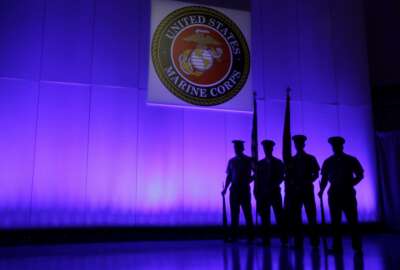
Congressional frustration rises over DoD policies on right-wing extremists
The Defense Department does not regularly check recruits' social media before allowing them in the military.
Amid signs of increasing white supremacy within the military, lawmakers are frustrated and confused by the Defense Department’s current policies of weeding out potentially dangerous right-wing extremists as they join the service or continue to serve.
House Armed Services Personnel Subcommittee Chairwoman Jackie Speier (D-Calif.) and Ranking Member Trent Kelly (R-Miss.) said they were concerned about the extent to which DoD looks into its service members’ social media activity during the accessions process, and the process in which the military decides how members of white supremacist groups are handled.
A 2019 poll from the Military Times found 36.6% of troops witnessed examples of white nationalism or racism within the ranks of the military. That’s an increase from 21.7% in 2018 and 23.1% in 2017. Of the minority service members who responded to the poll, 53.5% said they saw white nationalism or racism. Troops responding to the poll also cited white nationalists as a greater threat to national security than domestic terrorism associated with Islamic extremism and immigration.
Despite the growth, DoD is not checking sites like Facebook, Twitter or Instagram on a wide scale when hiring new service members.
Related Stories
Garry Reid, director for defense intelligence in counterintelligence, law enforcement and security, said DoD does have the option to look at some troops’ social media that is publicly facing, but it is not done at a larger level.
“We do not do that on scale for every background investigation right now,” Reid said. “We have the ability to do it if there are investigative leads. We would like to do it on scale for everybody all of the time, but we are still developing the right tools. There are pitfalls, false information, identity resolution, use of handles and avatars that you sometimes don’t know who you have.”
Reid said DoD has all the authority it needs from Congress to adapt the process to scale, but it has not yet happened.
“Any job application today requires that the review that takes place looks at social media,” Speier said. “Our reluctance or timidity at wanting to do that at the front end in accession makes no sense. This is the 21st century and that’s how people communicate. If we can’t look at that then we are not necessarily doing a fulsome review.”
It’s not only accessions that concerned lawmakers, though.
Speier said she was baffled as to some of the Pentagon’s policies regarding troops in the military with white supremacist affiliations. She also said she’s concerned about how the decision to remove those troops from the military or discipline them remains at the command level.

“Policy dictates mere membership in a white supremacist group is not prohibited,” Robert Grabosky, deputy director of the Air Force Office of Special Investigations said. “Active participation is actually attending rallies, fundraising or actually being actively involved in the organization.”
Speier said, to her, membership seemed like a type of activity and wants her committee to look into the matter.
She was further concerned that if a service member violates the Uniform Code of Military Justice by being active in an organization, the command decides the punishment.
“If all of these cases you work very hard to investigate are then referred to the command and there’s total discretion within the command, then there’s not equal due process, there is not equal parsing out of punishment if we don’t have a standard,” Speier said.
Experts on the issue, who also testified before the committee said DoD needs better ways of identifying white supremacists in the military.
Heidi Beirich, co-founder and chief strategy officer of the Global Project Against Hate and Extremism, said DoD needs better screening measures, a tattoo database to identify extremist symbols and active monitoring of social media.
Copyright © 2025 Federal News Network. All rights reserved. This website is not intended for users located within the European Economic Area.
Scott Maucione is a defense reporter for Federal News Network and reports on human capital, workforce and the Defense Department at-large.
Follow @smaucioneWFED






